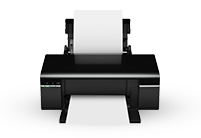Before Your Appointment
It is important to be prepared for your appointment with your physician. Remember, your physician relies on you to share important information in order to best treat your knee pain. A Knee Pain Assessment can help you gather the right information for your physician to help make your next appointment a success.

Take our interactive Knee Pain Assessment.
You can print your results at the end.
Sanofi Canada does not collect nor have access to any personal information via this questionnaire. It is provided to you for your own informational purposes. It is not a substitute for medical advice and should not be used under any circumstances to make a medical diagnosis of an illness or physical problem, or for prescribing or using drugs including those presented on the website. If you have any questions or concerns, you should refer to your physician or pharmacist.

Print our “to-go” Knee Pain Assessment.
If you prefer to fill the questionnaire on paper, a printable questionnaire is available in PDF format.
Knee Pain Assessment Survey
- You and your knees
- Your fitness level
- Previous treatments
- Your treatment goals
Prepare for your SYNVISC®/Synvisc-One® injection
Have you been prescribed SYNVISC®/Synvisc-One®?
Understanding the treatment your physician has prescribed can help you prepare for your appointment.
SYNVISC®/Synvisc-One® is injected directly into the affected joint. It is a temporary replacement and supplement for synovial fluid that lubricates and cushions the joint.
Want to learn more about SYNVISC®/Synvisc-One®?
- Temporarily replace and supplement joint fluid
- Decrease osteoarthritis pain and discomfort
- Allow for more extensive movement of the joint
- Working
- Taking the stairs
- Walking
- Swimming
- Using an elliptical machine
- Golfing
- Rowing
- Biking
- Skiing
- Skating
- Tennis
- Running
- You may need at least 48 hours of rest after your treatment before resuming full activities
- Use an ice pack over the injected joint and elevate your joint.
- Avoid activities like jogging or standing for long periods of time.
Grade 1 (very mild) Grade 2 (mild) Grade 3 (moderate) Grade 4 (severe)
SYNVISC® is beneficial for patients in all stages of joint pathology and Synvisc-One® is beneficial for patients in all stages of knee pathology.
Estimated time to relief: ________
Estimated duration of relief: ____________
It’s important to have realistic expectations of treatment success.
Discuss your expectations for SYNVISC®/Synvisc-One® with your physician. You should also take the time needed to understand your physician’s clinical objective(s) for recommending SYNVISC®/Synvisc-One® injections.
There is no cure for osteoarthritis. SYNVISC®/Synvisc-One® injections could help decrease the pain, but they aren’t a cure. Everyone responds differently to treatment and will experience different levels of relief.
Remember, SYNVISC®/Synvisc-One® is most effective in people who are actively and regularly using the affected joint.
Before your injections, take some time to discuss your activities based on your grade of osteoarthritis. Your physician, physiotherapist and/or kinesiologist should be able to set realistic expectations of activities you should pursue, adapt or stop due to your current level of osteoarthritis.
After the injection, you may want to re-evaluate the activities based on the success of your treatment plan. Before your injection, it’s important to have realistic expectations of the treatment’s success.
A SYNVISC®/Synvisc-One® injection only takes a few minutes. Your physician may apply a numbing agent beforehand. You may feel some pressure inside the joint from the gel-like substance, but it shouldn’t be painful.
Your physician will need to use an additional guide, such as an ultrasound or fluoroscopy imaging, to help with SYNVISC® injections in the shoulder and hip.
Let your healthcare professional know if you do not like needles and if you would like to use a numbing agent on the injection site.
When selecting your day for the injection appointment, plan rest or slow days before and after the injection so you do not overuse the joint unnecessarily.
Plan to rest after your injection and avoid exerting your joint(s).
Plan up to a month before going on vacation or restarting seasonal activities or sports. This will provide you and your physician time to manage potential side effects before your vacation or activity.
Like with any other health product, you should talk with your physician and/or pharmacist about what could happen and what to do in the event of a side effect.
You may experience side effects from SYNVISC®/Synvisc-One® in the injected joint such as temporary pain, temporary swelling and/or some fluid effusion/inflammation. This type of reaction can potentially happen temporarily after you inject a substance into a joint.
Remember that the benefits you get from Synvisc®/Synvisc-One® may still be apparent even if you experience a side effect.
Proactively ask for instructions if you experience any side effects, so that you will know when and how to reach your clinic or your physician in the advent of a given side effect.
The full list of known side effects is presented here for your information:
Temporary pain, temporary swelling and/or fluid effusion in the injected joint as well as joint warmth and/or stiffness may occur after Synvisc®/Synvisc-One® injections. Systemic events may occur rarely with Synvisc®/Synvisc-One® use, including rash, hives, itching, fever, nausea, headache, dizziness, chills, muscle cramps, paresthesia, peripheral oedema, malaise, respiratory difficulties, flushing and facial swelling. Hypersensitivity reactions, including anaphylactic reaction, anaphylactoid reaction, anaphylactic shock and angioedema, have also been reported. Intra-articular infections have been reported only rarely during clinical use of SYNVISC®/Synvisc-One®.
Set a reminder in your calendar 6–12 months after your injection to schedule a follow-up appointment with your physician.
Your physician will decide whether another Synvisc®/Synvisc-One® injection is right for you.
Always take precautions and rest for 48 hours after each Synvisc®/Synvisc-One® injection.
Many clinics sell SYNVISC®/Synvisc-One® to their patients on the day of the injection for convenience. You may also purchase the SYNVISC®/Synvisc-One® treatment from your pharmacy and then return to your physician’s office for the injection. Your pharmacy may not have SYNVISC®/Synvisc-One® in their inventory. In that case, they will have to order the product(s) from their wholesaler, which may take a few hours or days depending on your location.
Tip: Always call your pharmacy several days before your injection day to ensure they have the product(s) ready for you.
Questions about insurance coverage?
Before your injection appointment, learn more about SYNVISC®/Synvisc-One® coverage options
